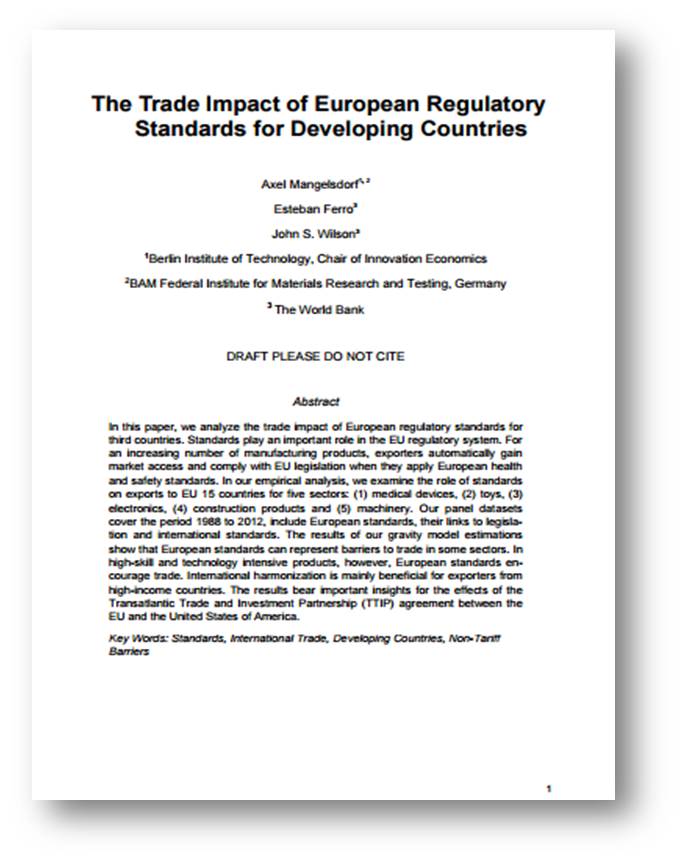Research
The Trade Impact of European Regulatory Standards for Developing Countries
In this paper, the authors analyze the trade impact of European regulatory standards for third countries. Standards play an important role in the EU regulatory system. For an increasing number of manufacturing products, exporters automatically gain market access and comply with EU legislation when they apply European health and safety standards. In the empirical analysis, the authors examine the role of standards on exports to EU 15 countries for five sectors: (1) medical devices, (2) toys, (3) electronics, (4) construction products and (5) machinery. The panel datasets cover the period 1988 to 2012, include European standards, their links to legislation and international standards. The results of the gravity model estimations show that European standards can represent barriers to trade in some sectors. In high-skill and technology intensive products, however, European standards encourage trade. International harmonization is mainly beneficial for exporters from high-income countries. The results bear important insights for the effects of the Transatlantic Trade and Investment Partnership (TTIP) agreement between the EU and the United States of America.
The paper is available from the ResearchGate website.
Authors:
Axel Mangelsdorf, Berlin Institute of Technology, Chair of Innovation Economics
Esteban Ferro, BAM Federal Institute for Materials Research and Testing, Germany
John S. Wilson, The World Bank

